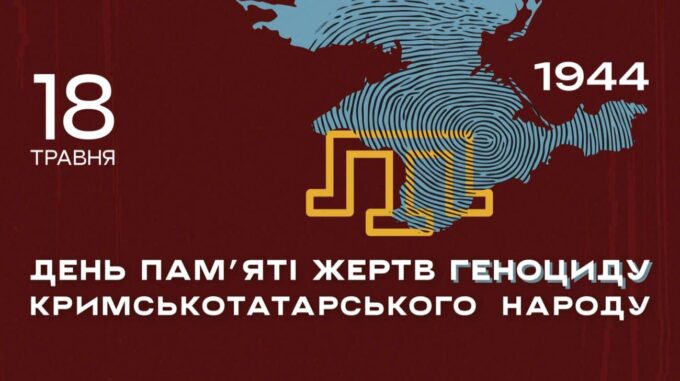The Crimean Tatar Mejlis has once again responded regarding the situation in illegally occupied Crimea by Russia, emphasizing once more that the current policy of the Kremlin towards the peninsula is a direct continuation of the tragic events of the past—the genocide of the Crimean Tatars during Soviet times

In its official statement dedicated to the 81st anniversary of the deportation of the indigenous people, the organization underscored that the Crimean Tatar nation remains a victim of systemic persecution, repression, and destruction of cultural identity, a process that continues to this day. The Mejlis’s statement was made on the Day of Remembrance for the victims of the genocide and served as a voice for those who do not forget history and fight for their rights and freedoms to be restored. The document emphasizes that the 1944 deportation was not merely a mass eviction but a targeted act of ethnic destruction aimed at breaking the Crimean Tatar people deeply and for the long term. However, despite many years of struggle, the Crimean Tatars still face persecution, their rights and freedoms are ignored, and their cultural integrity continues to suffer destructive impacts. The Mejlis called on the international community to intensify efforts to recognize the deportation of Crimean Tatars as an act of genocide and to strengthen sanctions against Russia for its aggression and violation of international law. They stressed the importance of supporting the idea of de-occupation of Crimea and creating a Crimean Tatar national-territorial autonomy in the region, which could become a significant step toward restoring the rights of the indigenous people. The statement particularly highlighted the need to legally establish in Ukraine the status of the Mejlis as a representative body of the Crimean Tatar people. According to the Mejlis representatives, this is a crucial element in protecting the rights and interests of the Crimean Tatar community and will contribute to strengthening its position in national politics. "Securing the status of the Mejlis as an official representative body of the Crimean Tatar people by the Cabinet of Ministers of Ukraine, in accordance with the Law ‘On the Indigenous Peoples of Ukraine,’ is not just a legal formality but an important step towards long-term safeguarding of our people's rights and freedoms," the statement reads. Despite decades of repression, persecution, and even the deaths of Crimean Tatar representatives during Soviet times, the Mejlis emphasizes that the people remain resilient and continue fighting to regain their ancestral lands. They affirm that any attempt to legitimize the occupation of Crimea or diminish the significance of the deportation is a shameful support of a crime against humanity and a deep betrayal of the memory of the millions of genocide victims. In closing, the Mejlis calls on the international community to actively support the Crimean Tatar people's position, particularly through strengthening sanctions against Russia and recognizing the 1944 deportation as an act of genocide—an acknowledgment that must remain an important part of historical truth and national memory. The organization also stresses the necessity of embedding in Ukraine’s legal system the concept and status of the Mejlis as a representative body capable of defending the interests of the Crimean Tatar population at the state level. In its statement, the Mejlis reaffirmed its resilience and active stance in the fight to return to their ancestral lands, emphasizing that the entire struggle of the Ukrainian and Crimean Tatar peoples is a fight for truth, dignity, and justice. "Any attempts to legitimize the occupation of Crimea and support it are not only support for criminal actions but also a betrayal of the memory of the victims of genocide spanning thousands of years," the final words declare. Therefore, on this day of mourning, honoring the memory of the deportation and genocide victims, Crimean Tatar leaders urge the whole world not to forget the historical truth and to continue the fight for freedom and justice in the region.

